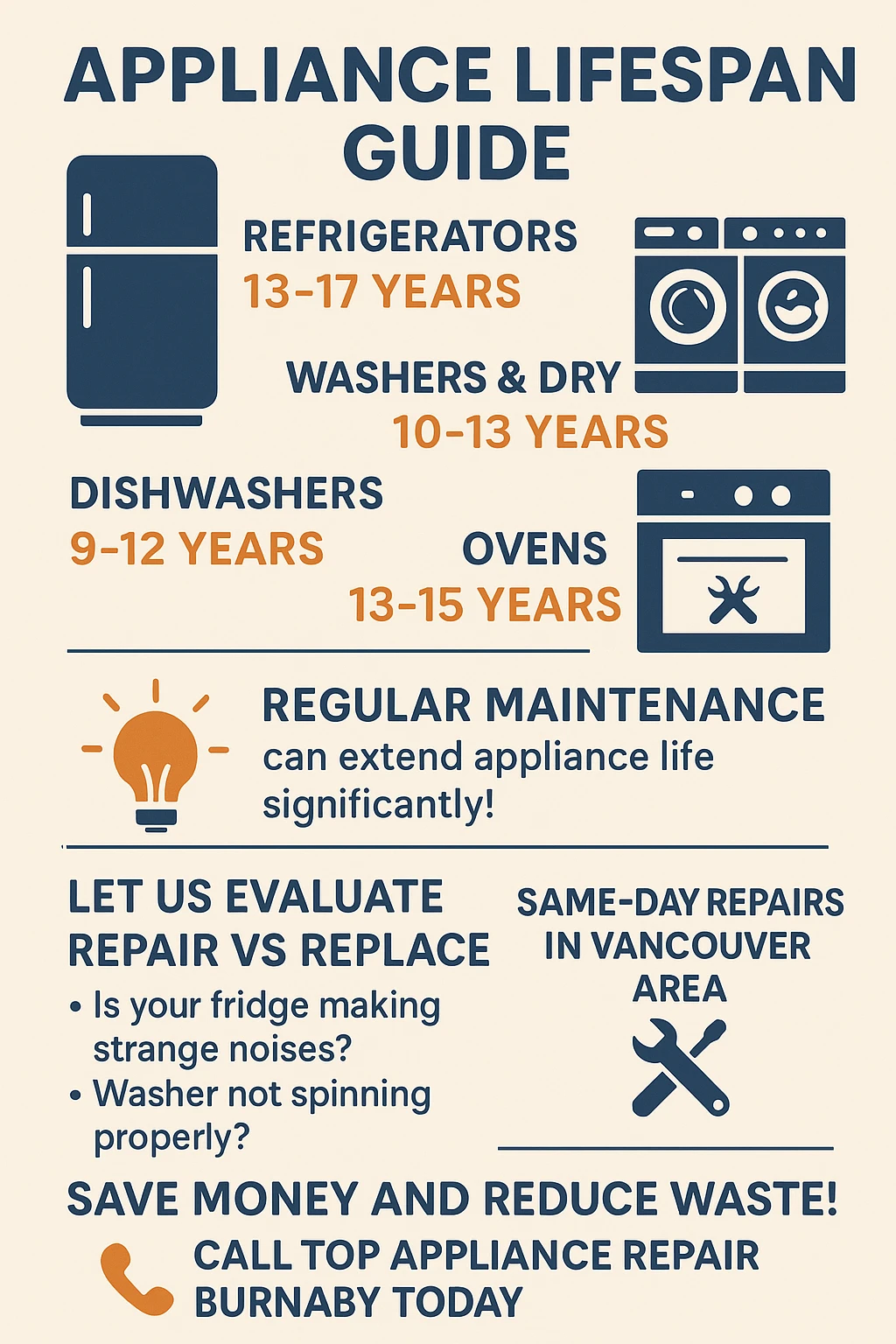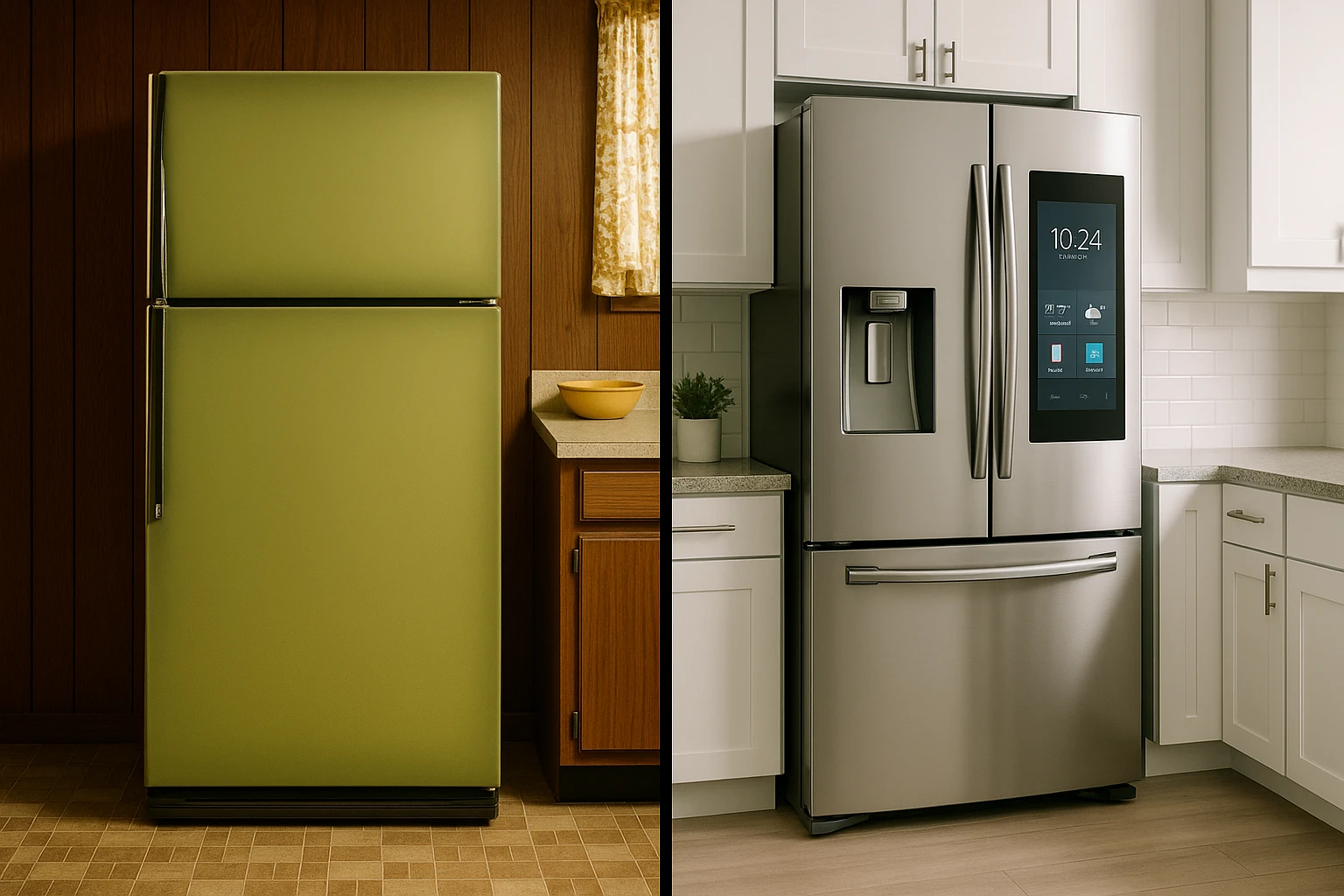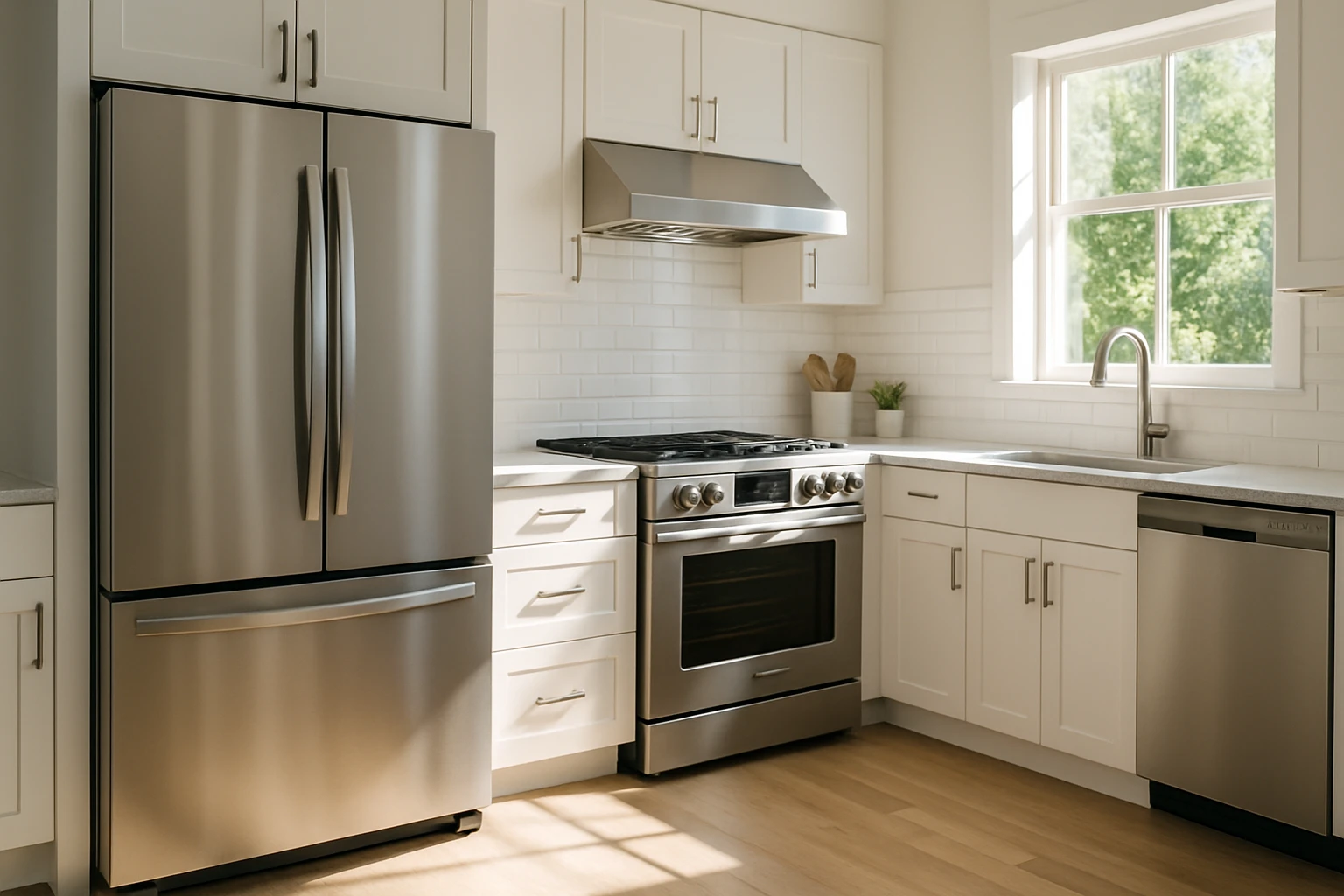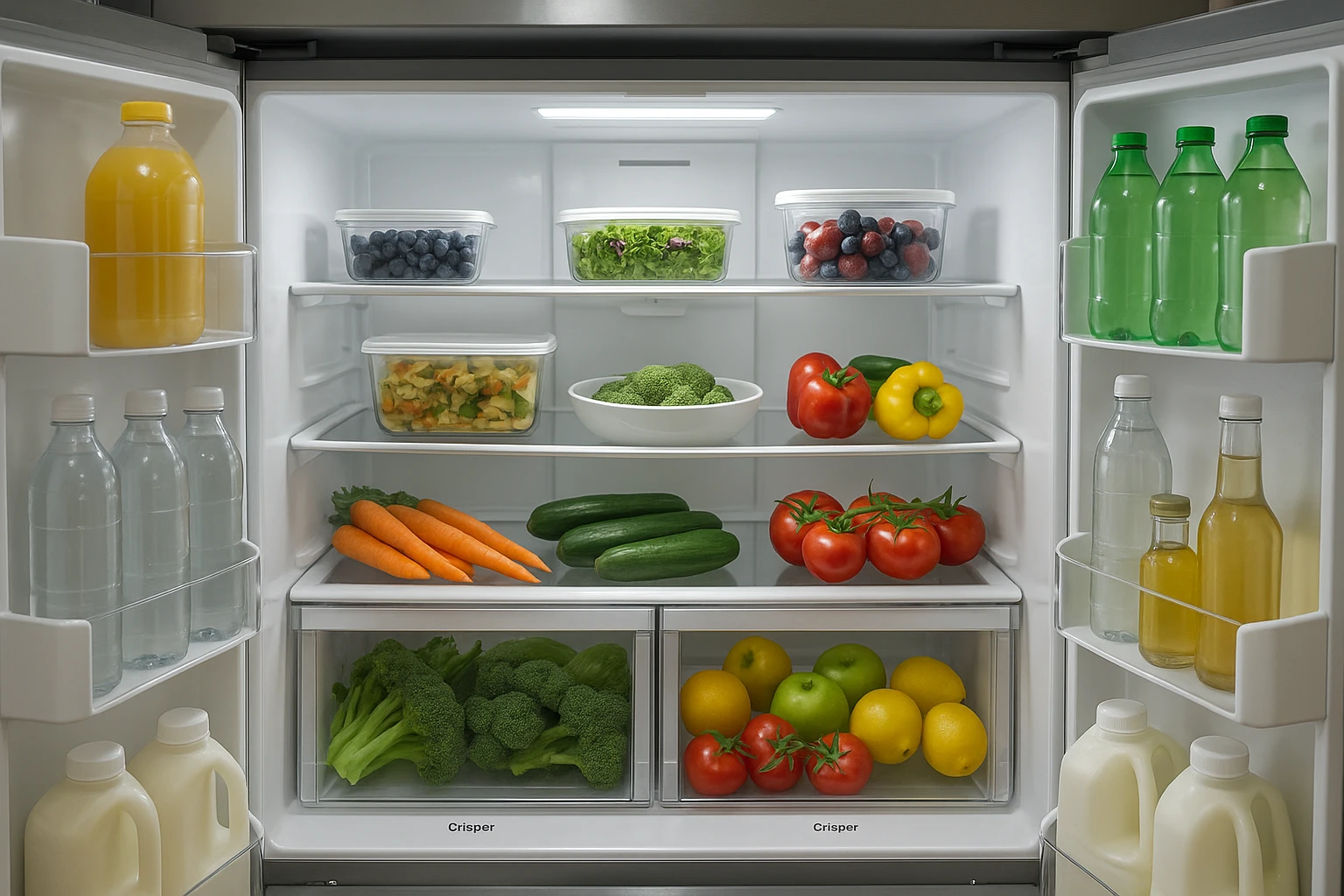Wondering how long your trusty fridge should actually keep your groceries cold, or when that dishwasher might finally give up? You’re not alone – figuring out appliance lifespans can feel like trying to decode a secret language, but we’re here to break it all down for you!
Let’s be real for a hot minute – appliances today aren’t the same beasts our grandparents dealt with. You know that ancient avocado-green refrigerator that somehow survived three decades in your aunt’s basement? Yeah, those days are pretty much over, and there’s actually some solid science behind why. Modern appliances are packed with more bells and whistles than a carnival, which means more things that can (and will) break down over time.
But here’s the thing that gets me fired up about this whole topic – understanding appliance lifespans isn’t just about budgeting for that inevitable replacement day. It’s about getting the most bang for your buck, knowing when to call it quits on repairs, and maybe even extending your appliance’s life with some TLC. Plus, let’s face it, nobody wants to be caught off guard by a dead dishwasher when you’re hosting thanksgiving dinner!
The reality check we all need? Today’s appliances typically last anywhere from 5 to 20 years depending on what we’re talking about, how you treat them, and frankly, how lucky you get with quality control. Some will surprise you by lasting way longer than expected, while others might tap out just as their warranty expires (ugh, the worst timing ever). The key is knowing what to expect so you can plan accordingly and spot the warning signs before things go completely sideways.
Key Outtakes:
- Most modern appliances last between 8-16 years, with refrigerators and ranges typically lasting the longest
- Simple, basic models without fancy features tend to outlast their high-tech counterparts because fewer components mean fewer failure points
- Regular maintenance can significantly extend your appliance’s lifespan – sometimes by years
- The “50% rule” applies: if repair costs exceed 50% of replacement value, it’s usually time to buy new
- Higher-end appliances don’t automatically last longer, but commercial-grade models often do

Understanding Modern Appliance Lifespans

Here’s where things get interesting (and maybe a little frustrating) – the whole “they don’t make them like they used to” thing is actually backed up by data, but it’s not as dramatic as you might think. According to industry research, appliance lifespans have only decreased modestly over the past few decades. We’re talking about a drop from roughly 11-16 years in 2010 to 9-14 years by 2019 for most major appliances.
The culprit behind shorter lifespans isn’t necessarily planned obsolescence (though that’s definitely a factor). It’s actually a perfect storm of increased complexity, energy efficiency regulations, and our own desire for cooler features. Think about it – your grandmother’s washing machine had maybe three settings and a timer. Today’s washers have sensors, multiple wash cycles, digital displays, and sometimes even WiFi connectivity. All those awesome features come with more circuit boards, more moving parts, and more opportunities for something to go wrong.
What really blows my mind is how energy efficiency standards have inadvertently affected durability. Those regulations that make our appliances use less water and electricity? They’ve forced manufacturers to switch from simple analog components to complex digital systems. Your dishwasher now has computer algorithms that calculate exactly how much water to use based on soil sensors, which is amazing for your utility bill but adds layers of complexity that didn’t exist before.
Kitchen Appliance Lifespans

Let’s dive into the heart of your home – the kitchen – where appliances work overtime and take a serious beating. Kitchen appliances generally fall into predictable lifespan categories, but usage patterns and maintenance habits can dramatically affect these numbers. Understanding what to expect from each appliance helps you budget for replacements and recognize when it might be time to start shopping.
Refrigerators

Your fridge is probably the hardest working appliance in your house, running 24/7 to keep your food fresh. The good news? Refrigerators typically last between 10-18 years, with simpler top-freezer models often outlasting their fancy side-by-side or French door cousins. The difference comes down to complexity – those in-door ice makers and water dispensers might be convenient, but they’re also prime candidates for breakdown.
Top-freezer refrigerators are the champions here, often lasting 14+ years because they have fewer moving parts and less complex cooling systems. Side-by-side models average around 11 years, while the popular French door styles fall somewhere in between. The key factors affecting your fridge’s lifespan include how often you open the doors (seriously!), whether you keep it properly loaded, and if you stay on top of basic maintenance like cleaning those condenser coils.
Here’s a pro tip that changed my whole perspective on fridge care: your refrigerator actually works more efficiently when it’s reasonably full because the food items help maintain temperature, but overpacking blocks airflow and makes the compressor work harder. It’s all about finding that sweet spot where everything fits but air can still circulate freely.
Watch for warning signs like inconsistent temperatures, excessive noise, or your food spoiling faster than usual. If your energy bills suddenly spike without explanation, your aging fridge might be working overtime to maintain cool temperatures. The compressor is usually the first major component to fail, and since it’s expensive to replace, a dying compressor often signals the end of your refrigerator’s useful life.
One thing that really surprised me in my research was learning that the location of your fridge matters more than you’d think. Units in hot garages or areas with poor ventilation typically don’t last as long because the compressor has to work harder to dissipate heat. If you’re planning a kitchen renovation, giving your fridge some breathing room and keeping it away from heat sources can add years to its life.
Ranges and Ovens
Ranges and ovens are generally the marathon runners of kitchen appliances, with gas models typically outlasting electric ones by a few years. Gas ranges can chug along for 15-23 years on average, while electric ranges usually last 13-20 years. The reason gas units tend to last longer is partly because they have fewer electronic components – it’s harder to mess up a simple gas valve than a complex electronic heating element control system.
The beauty of ranges is that they’re still relatively simple appliances at heart. Even modern models with digital displays and multiple cooking modes rely on basic heating principles that haven’t changed much over the decades. This simplicity works in your favor for longevity, especially if you avoid models with too many electronic bells and whistles.
What kills ranges faster than anything? Neglect and misuse, honestly. Spills that aren’t cleaned up promptly can damage heating elements and electronic components. Using your oven’s self-cleaning feature too frequently can actually stress the unit and shorten its lifespan, which seems counterintuitive but makes sense when you consider the extreme temperatures involved.
Smart shopping tip: look for ranges with easily replaceable heating elements and simple controls. Professional maintenance guides consistently show that models with fewer electronic features and more mechanical controls tend to last longer and cost less to repair when something does go wrong.
Signs your range might be on its way out include uneven heating, temperatures that don’t match the settings, pilot light problems (for gas models), or control panels that are becoming unreliable. Unlike some appliances where major component failure means replacement, ranges often have repairable issues that can extend their useful life significantly if caught early.
Dishwashers
Dishwashers are probably the most temperamental appliances in your kitchen, with lifespans typically ranging from 9-16 years. The wide range depends heavily on water quality, usage patterns, and how well you maintain the unit. Hard water is particularly brutal on dishwashers, causing mineral buildup that can clog spray arms and damage seals over time.
Here’s something that blew my mind when I first learned it: newer dishwashers aren’t necessarily built to last longer than older models, despite all the advanced features. In fact, those extra features often become failure points. The multiple wash cycles, soil sensors, and heated dry functions that make modern dishwashers so effective also add complexity that can lead to problems down the road.
